
We kindly inform you that, as long as the subject affiliation of our 300.000+ articles is in progress, you might get unsufficient or no results on your third level or second level search. In this case, please broaden your search criteria.

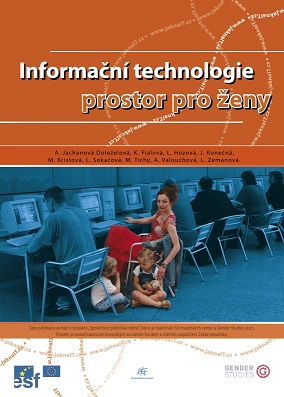
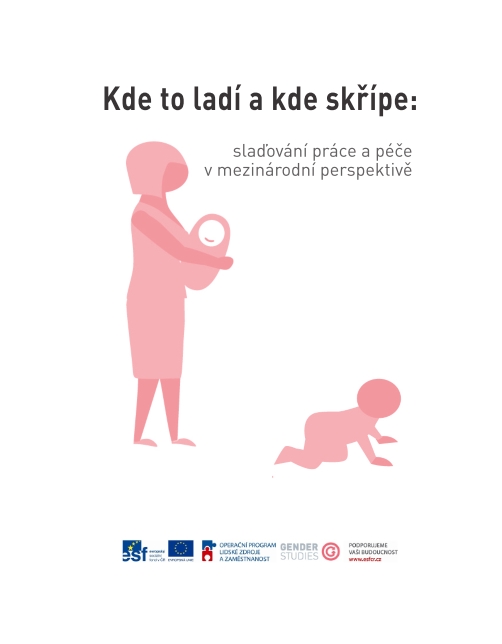

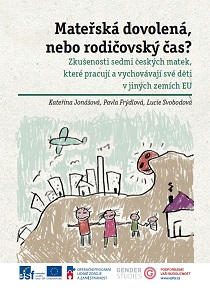
Česko se ani v těchto letech, kdy se na místo ve školce stojí fronty, není schopné v prorodinné politice inspirovat u svého nejbližšího souseda, v Německu. Zde se vláda kancléřky Angely Merkel zavázala, že do roku 2013 bude mít každé dítě po dovršení prvního roku právo na místo ve školce. A tento slib je už viditelný i v realitě - v obcích se staví školky, nabírá se personál. U nás je zodpovědnost za péči o děti zcela ponechána v rukou matek, které nemají ani zákonnou možnost pomoci si samy. Místo otevřeného prostoru jsou válcovány hygienickými nařízeními nutnými pro zřízení zařízení péče o děti, firemní školy je nutné hledat lupou a něco v Německu tak běžného jako institut Tagesmutter, denních matek, je stále v nedohlednu.
More...
V roce 1990 fungovalo v ČR celkem 1043 veřejných jeslí, v roce 2000 jich bylo evidováno pouze 67 a do roku 2007 klesl jejich počet jen na 49. V souvislosti s porodní křivkou silné generace 70. let se s nedostupností péče o malé děti potýká většina rodičů dětí předškolního věku. Tento problém bude v nejbližších letech přerůstat do prvního stupně základních škol. Ve školním roce 2011/2012 nebylo jen v hlavním městě Praha přijato přes 8000 dětí. Počet předškoláků v hlavním městě Praha i nadále roste, podle očekávání magistrátu tomu tak bude příští dva až tři roky. Stejné zkušenosti mají místní samosprávy v celém Česku. Vzáří 2012 nenastoupilo do školek na 50 000 dětí, které by nastoupit chtěly či potřebovaly. Je zde nastaven přesně opačný trend než ve vyspělých zemích, kde jako ve Francii jsou školky součástí školského systému.
More...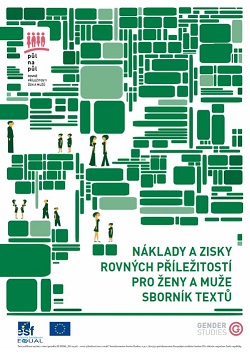


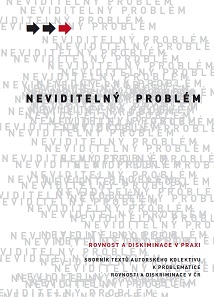
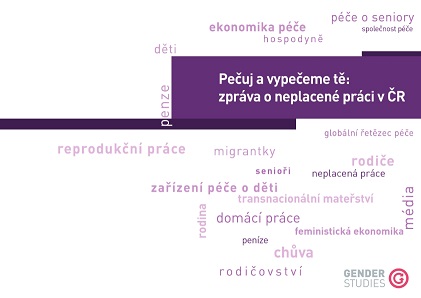
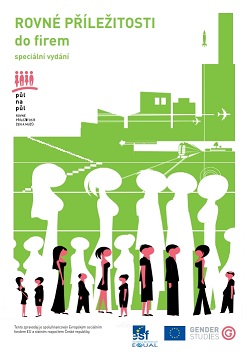
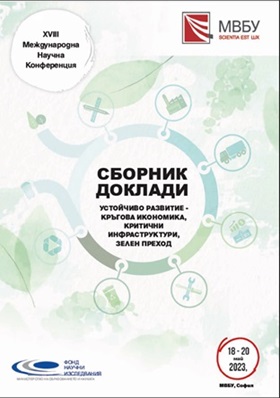
Neuromanagement is a new field of management that has developed as a result of the application to human resource management of knowledge generated in the fields of cognitive neuroscience and psychology. The goal of neuromanagement is, through the study of brain activity during the course of mental processes at the moment when people are faced with an economic or managerial problem, to acquire knowledge that will help to develop and use the intellectual potential of all workers in the organization in order to achieve higher production efficiency of each worker and more effective management of the organization. There are a number of differences between classical management and neuromanagement concerning: the orientation of management functions; the principles on which the management process is based; the means of influencing the personnel; the system of motivating the personnel. The new economic reality turns intellectual capital into the most important production factor. A cluster of professional competencies was defined at the 2015 World Economic Forum in Davos that will be sought in organizations using the principles of neuromanagement. All these irreversible processes of change are also placing new demands on schools and universities, both in terms of learning technologies and in terms of the formation of new skills and competences in future professionals that are vital for the business of the future.
More...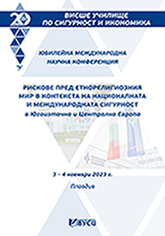
In a number of regions of the Republic of Bulgaria, especially in rural areas, agribusiness is the main area of employment for the local population. All ethnic groups, without exception, have free, constitutional access to the labor market in this industry. The qualification of the Roma ethnic group to the vulnerable groups also puts on the agenda the issue of use, application and broad awareness of the legislative opportunities that are provided to all ethnic groups for employment in agribusiness, in various forms, which is also a right of choice. At this stage, the legal toolkit enabling the persons from the Roma ethnic group to participate in active employment in agribusiness, which would also increase their quality of life, has not been sufficiently evaluated.
More...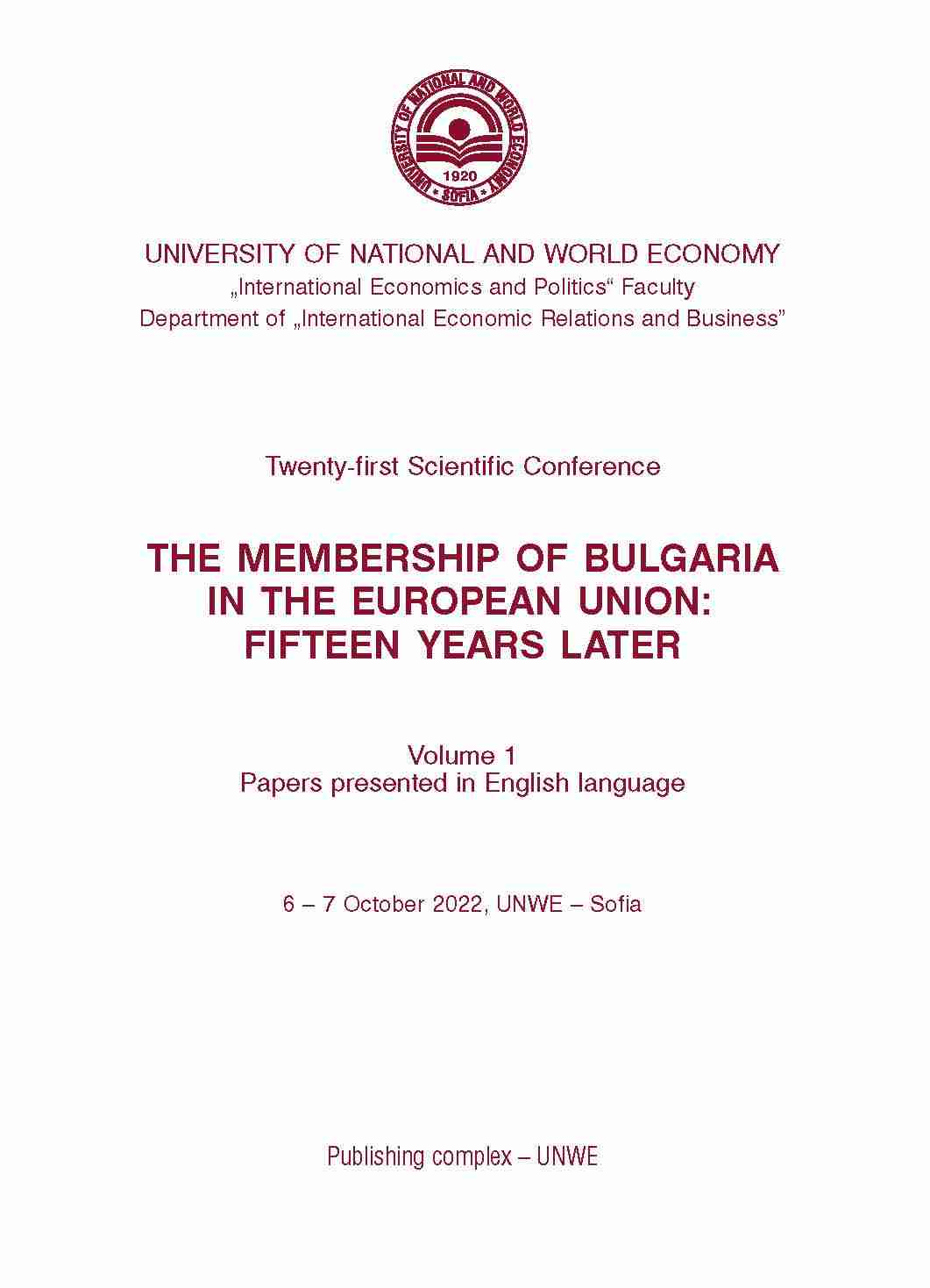
In the context of refugee crises, which have become the leading topic of political as well as scientific debates in past decade, the impact of migrants and asylum seekers on the labour market of the receiving country has attracted remarkable attention. Empirical research in this area indicates that migration has an insignificant effect on the change of the average wage, but it negatively affects the low-skilled labour force on the one hand and positively affects the high-skilled labour force on the other. The purpose of this article is to analyse the influx of refugees and asylum seekers to Germany with an emphasis on the genesis of the crisis in 2015-2016. We try to illustrate the integration of refugees in the local labour market. In accordance with the purpose of the paper we suggest two hypotheses reflecting refugees’ economic burden for hosted country and spatial distribution relevance for integration. To reach the purpose, we apply qualitative research methods such as semi-structured interviews. Our results suggest the limited refugees’ economic burden for German economy and significant effect of geographical allocation on integration process.
More...
The report analyzes the structure and convergent processes of employment in the Bulgarian and Romanian economies for the period 2000-2020, and examines the dynamics of relative shares and rates of change for the respective period. In order to quantitatively measure the degree of convergence/divergence, a divergence index and a difference index were calculated, comparisons with other EU countries with similar characteristics were used, and some possible explanations and consequences of the structural changes that took place were also derived. Overall, the results show a slow process of convergence of the sectoral structure of employment of the Bulgarian and Romanian economies with that of the Eurozone, which continues throughout the period, regardless of some specifics before and after the global recession.
More...
The global climatic changes and the reindustrialization of the European economy in the technological XXI century construct a cause-effect chain which starts and ends with education and science: digitalization and robotization – structural economic reforms -imbalance in the labour market – professional qualification and competence – transfer of science and innovations in the applied economy – lifelong learning. The ambitious aim of the ecologically-oriented European Union is to achieve a carbonneutral economy by the year 2050. In the process of Green and Digital Transformation innovative industrial productions will be opened with the integration of digital and ecological technologies. The segments of the labour market change. The professional realization in the education, science and information and communication technologies increases, and the one in the industrial and agricultural decreases. The deficit of engineering human capital (educated and competent workforce) reaches record levels on the labour market. The focus of the study is on the education and science in the context of the Green and Digital Transformation of the European Economy. The long term aim of the research is the sustainable professional balance on the labour market. The topic concerning the European labour market is developed on the base of the modern multidisciplinary method of scientific research. The educational policies in the Victorian industrialization of the economy and the analogous present day reindustrialization are compared in the analysis and interpretation of the results of the study.
More...
The digitization of activities became a constant sign of social evolution in recent decades. More and more professions allow the option to work remotely through information technology, resulting in exceptional flexibility in the way work is carried out for professionals in multiple fields. What seems like a flexible work schedule can turn into a permanent work schedule, and the assessment of its impact on employees can be determined by quantifying the high number of people who have complained of professional burnout in the last period. The purpose of this paper is to identify a viable legal mechanism for protecting workers against the possibility of carrying out a long activity, exceeding the maximum working time regulated by law. Finally, the author formulates a de lege ferenda proposal regarding the need to regulate the right to disconnect in Romanian legislation.
More...
This chapter by Victor Manolachi and Veaceslav Manolachi delves into the significance of carbohydrate metabolism for high-performance athletes. It examines how carbohydrate energy stores serve as crucial recovery factors after training and competitive efforts. The chapter discusses the bioenergetic processes involved in carbohydrate metabolism, highlighting the differences between anaerobic and aerobic efforts and their impact on physical performance. It also explores the mechanisms of energy substrate utilization, including glycogen and lipid reserves, and the physiological adaptations resulting from systematic training. The authors provide detailed insights into dietary strategies for optimizing carbohydrate intake, enhancing muscle glycogen stores, and improving overall athletic performance.
More...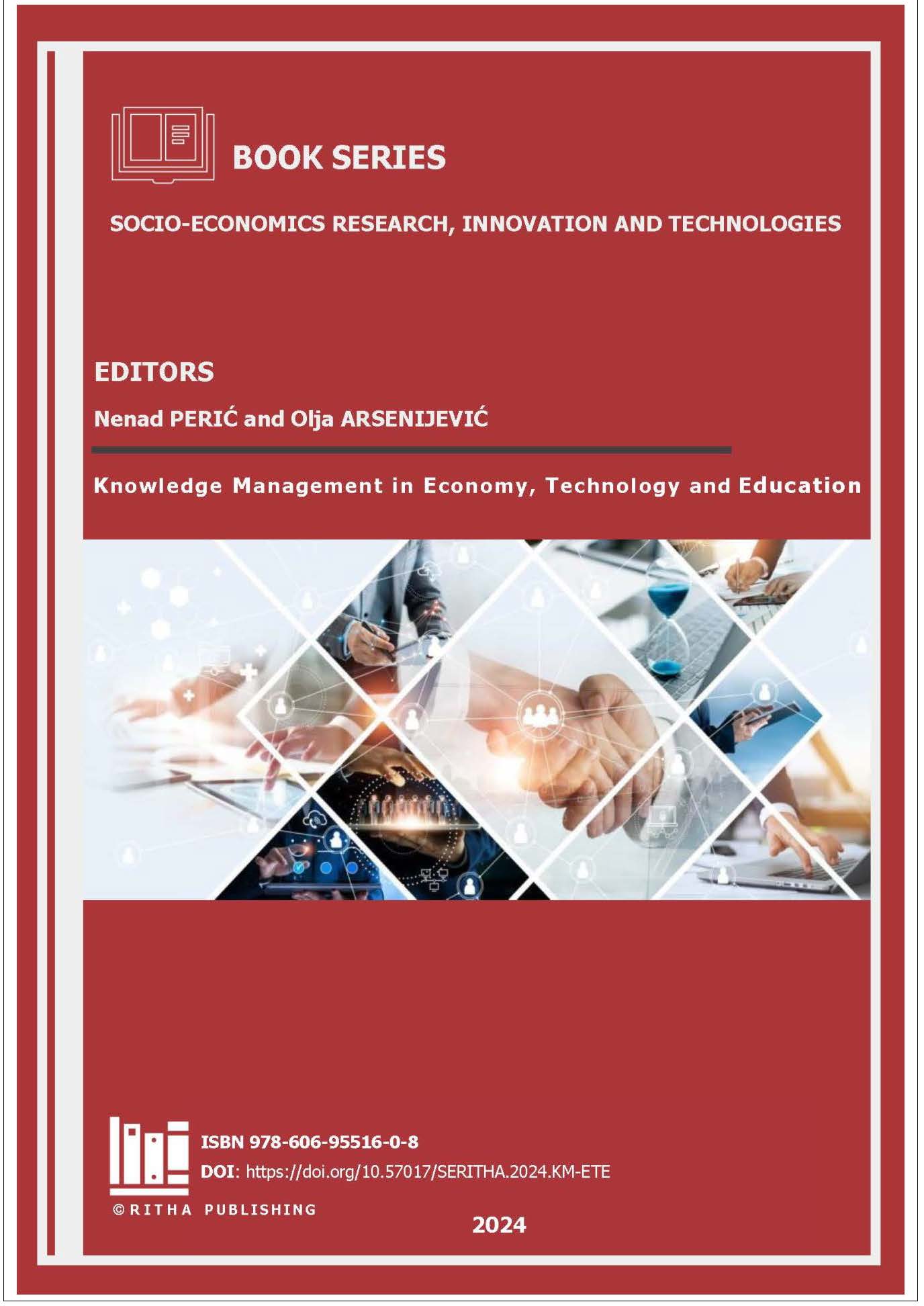
The fast development of Information and Communication Technologies (ICT) has revolutionised virtually every aspect of modern society, including education. Unlike conventional approaches that focus solely on the acquisition of hardware and software, knowledge-driven ICT utilization emphasizes the strategic integration of technology to facilitate knowledge creation, dissemination, and application. Exploiting the power of ICT to support teaching, learning, and knowledge management processes, education systems can transcend traditional boundaries and unlock new opportunities for learners and educators alike.This chapter seeks to examine the latest research findings, best practices, and case studies, aiming to provide insights into the potential of ICT in education and offer practical recommendations for promoting effective ICT integration in educational settings. Through an ample review of existing literature and analysis of key trends and developments, this chapter aims to contribute to the ongoing dialogue on harnessing technology to empower education and foster inclusive learning environments.
More...